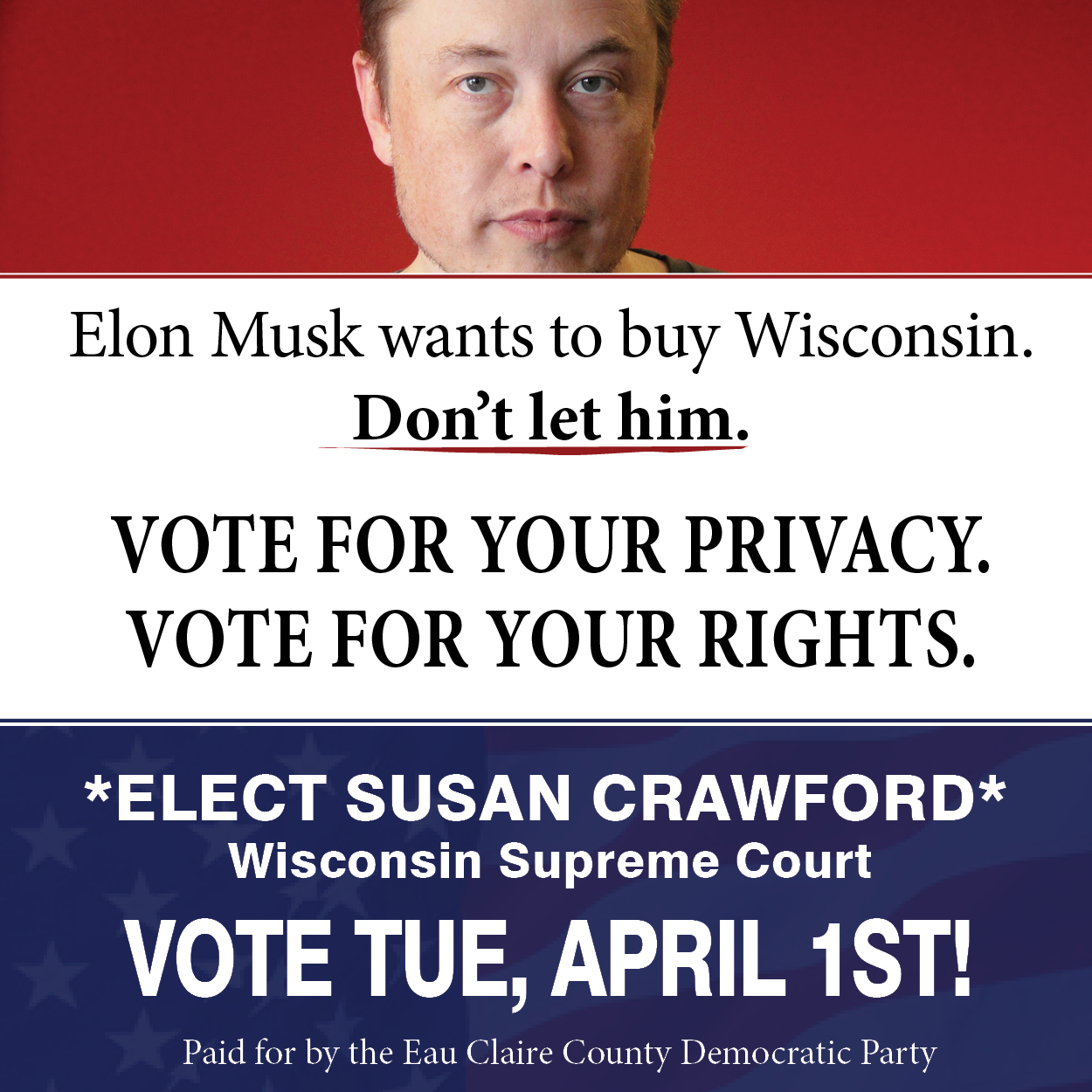Dems bash big money in state politics
Four-person panel said lobbying in Madison bypasses voter
April 9, 2014
Wisconsin democrats said voter ID laws and recent redistricting are threatening clean elections, during a panel discussion Monday at UW-Eau Claire.
Sen. Kathleen Vinehout, D-Alma, Rep. Dana Wachs, D-Eau Claire, Jeff Smith, the Wisconsin Democratic Party’s regional political director and Jay Heck, executive director of Common Cause Wisconsin, spoke to students and community members in a two-hour lecture and question and answer session.
Heck said Reps. Tom Larson, R-Colfax, Terry Moulton, R-town of Seymour, Kathy Bernier, R-Lake Hallie and Warren Petryk, R-town of Pleasant Valley, declined or were unable to attend Monday night’s event.
Panel speakers said republicans consolidated republican and democrat-leaning districts, which means candidates must be a deeper red or truer blue to get elected.
New legislation would require the redistricting process to mirror Iowa’s, where districts aren’t drafted by lawmakers, but by a non-partisan organization in the Hawkeye state.
“(New districts) were sprung on the state on one summer day in 2011, and then rammed into law,” Heck said. “As a result we have less competitive elections.”
Wachs represents the 91st assembly district, which covers Eau Claire. He said redistricting was an intentional attempt to keep left-leaning voters out of right-leaning districts.
“Eau Claire became a standalone district,” Wachs said. “Democrats were packed into Eau Claire and the surrounding districts were, by design, made more republican to give the republicans a better chance at re-election.”
The panel touched on two contentious supreme court decisions during Monday’s discussion – Citizens United and McCutcheon vs. FEC, which was resolved last Thursday.
The Citizens United case prohibits the government from preventing unions, corporations or other groups from donating to political campaigns.
The McCutcheon decision allows people to donate the maximum $2,600 to an unlimited number of
candidates.
Both decisions point to a core problem: the intersection of money and politics, Wachs said.
Wachs said since starting, he’s learned out-of-state lawyers and organizations write bills and influence state politics more than he expected.
“The lobbying influences in Madison are overwhelming,” Wachs said. “That’s part and parcel to the money that has invaded our political system with the Citizens United decision.”
Voter ID
Heck said historically, Wisconsin ranked second in the nation in voter turnout. But legislators passed Act 23 in 2012, which was the most restrictive voting law in the country, he said.
Act 23, isn’t active. State courts put the bill on pause.
“It’s a pretty good bet state courts will find that unconstitutional,” Heck said.
Act 23 supporters cite voter fraud as cause for stricter mandates. Attorney General J.B. Van Hollen reported voter fraud cases are rare. But a less-extreme voter ID bill is in the works to circumvent Act 23’s suspension, Heck said.
Vinehout said Wisconsin passed a referendum in 1849, a year after Wisconsin became a state, that said African Americans should have the right to vote. Wisconsin approved a law in the ‘30s guaranteeing voting rights to Wisconsin adults over 21 years old.
She said Act 23, which she calls the voter suppression bill, rewinds Wisconsin’s tradition of easy-access voting.
“It was the first change in 76 years where the state of Wisconsin made it harder, not easier, to vote,” Vinehout said. “These laws passed in the past few years do not reflect the will of the people regardless of party.”


